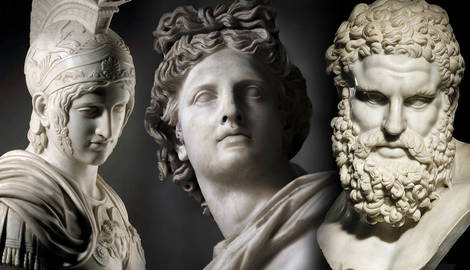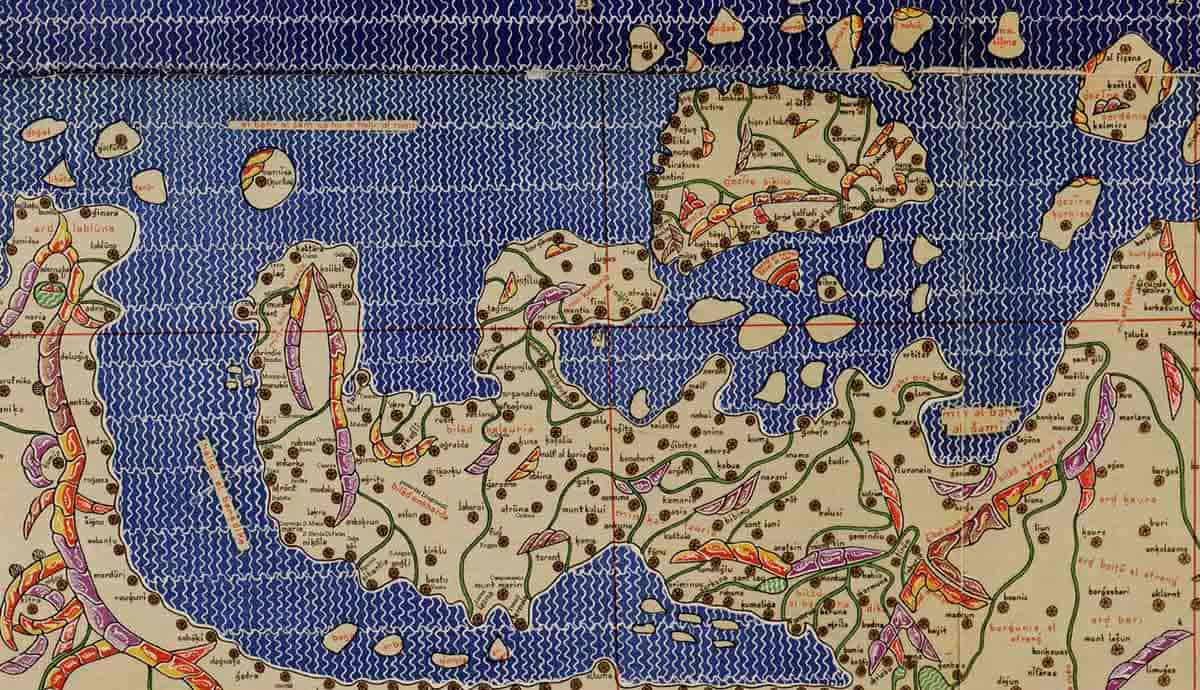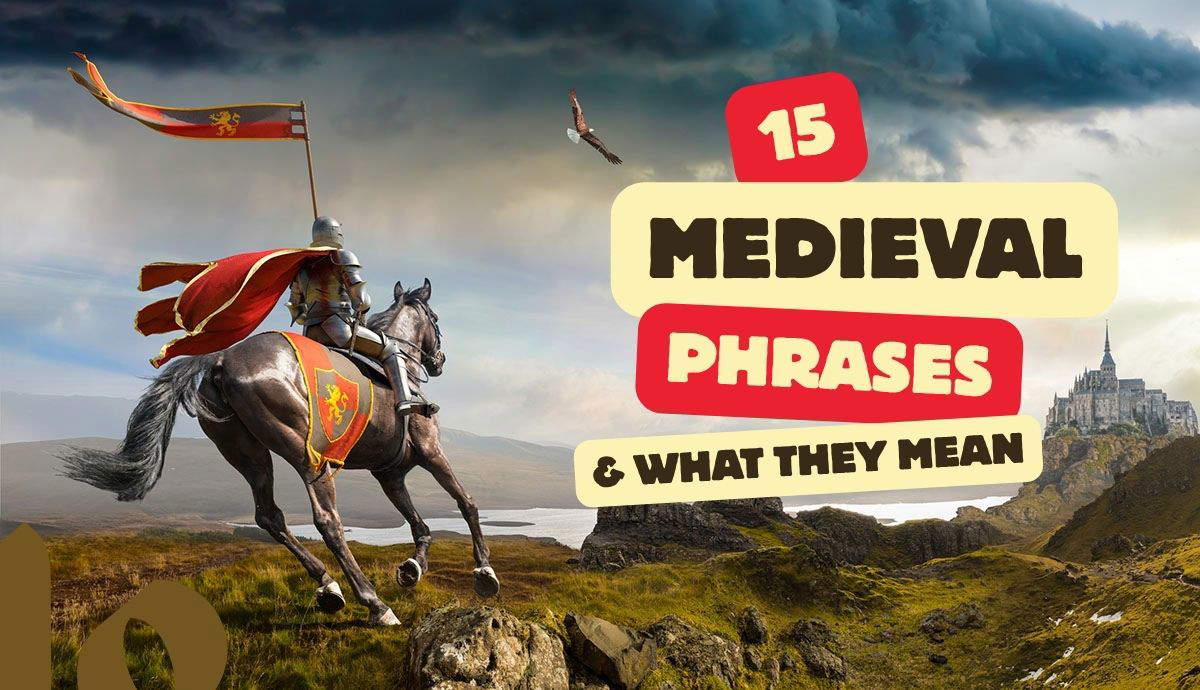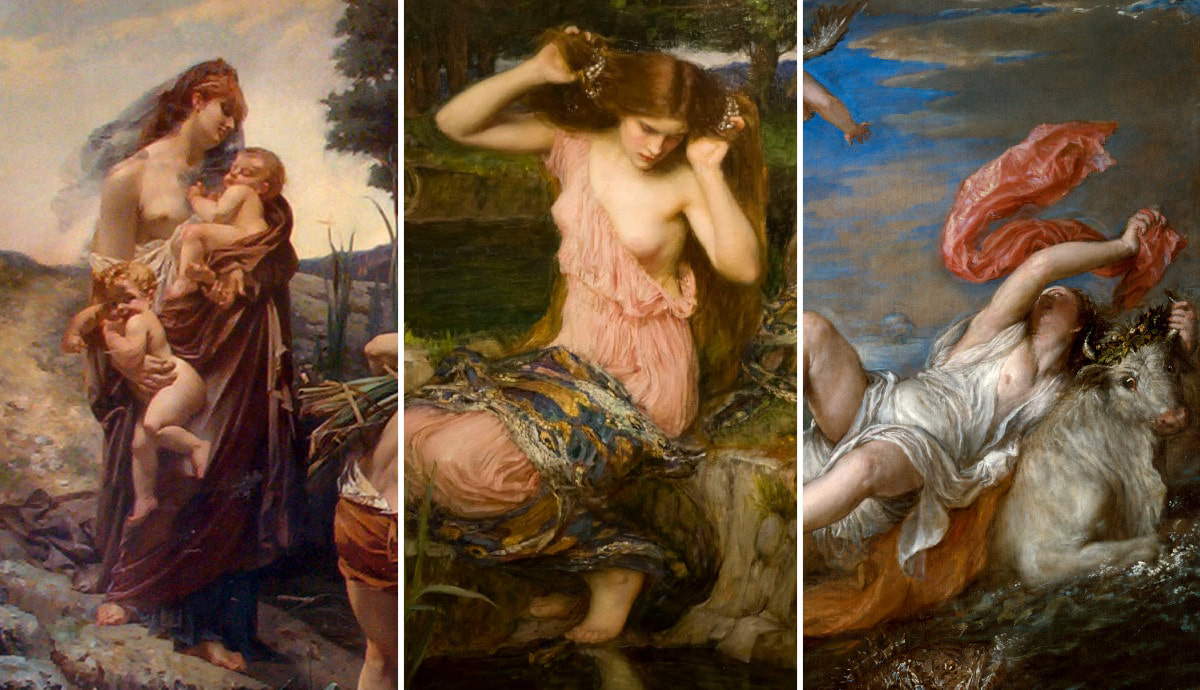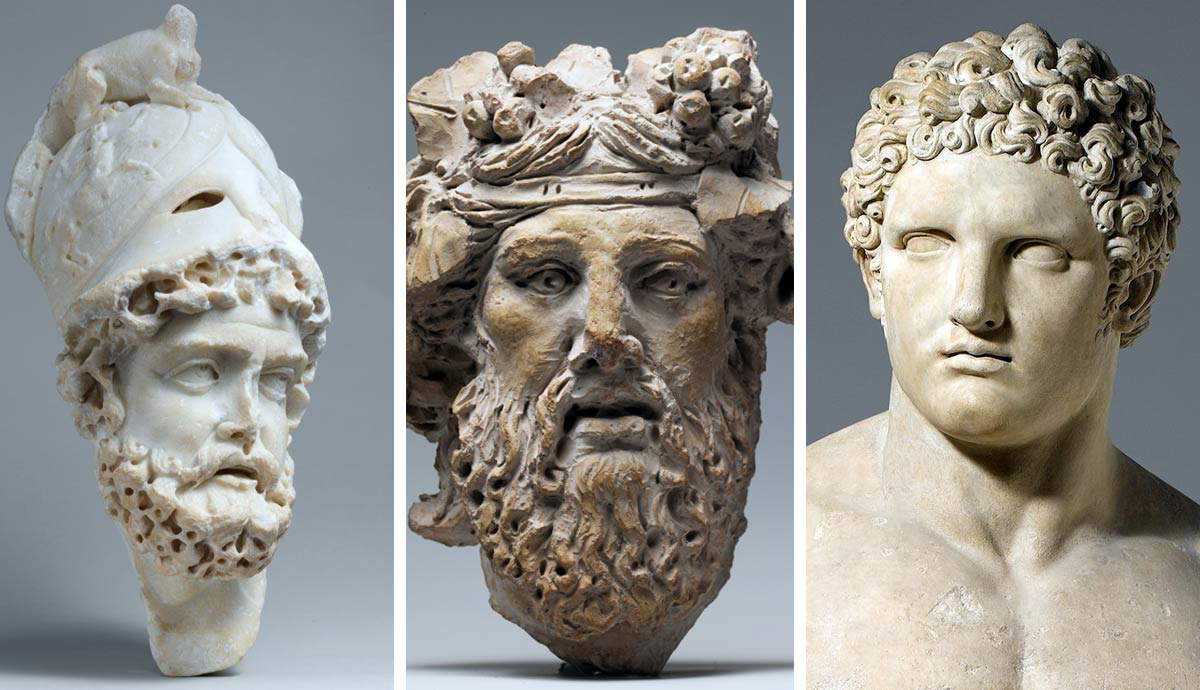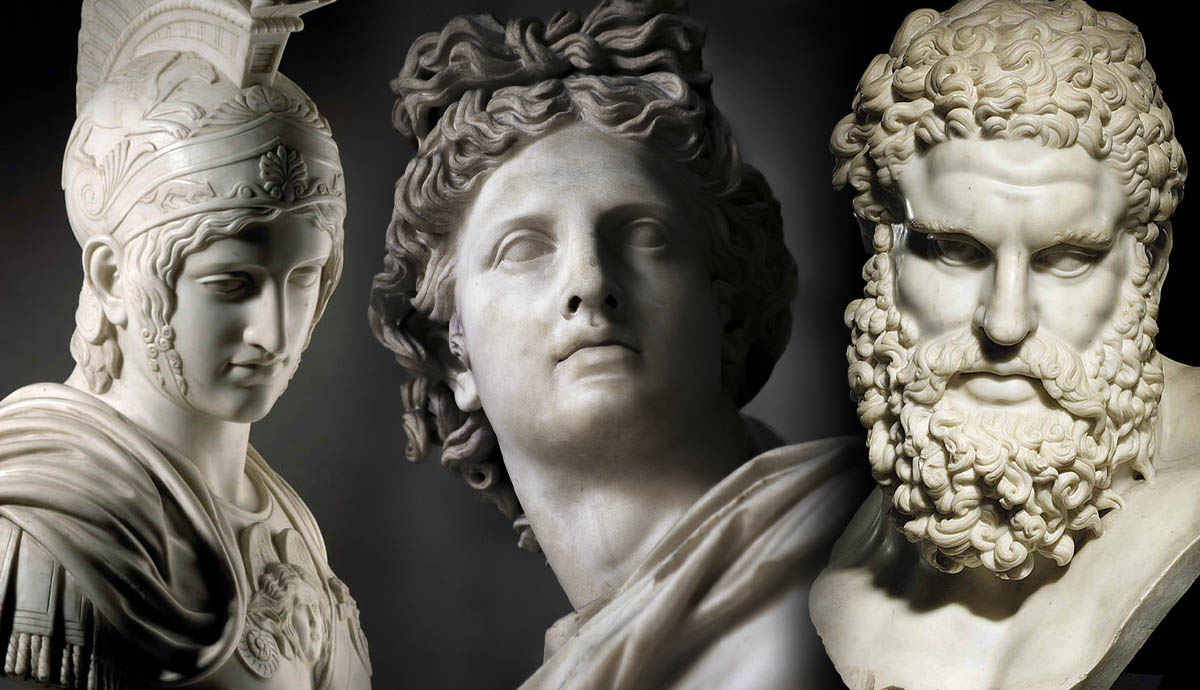
In ancient Greek mythology, Zeus is the almighty god of sky and thunder, a great powerhouse who ruled as king of Mount Olympus and leader to all gods. In his private life, Zeus was quite the lothario and had many lovers. But how many kids does Zeus have? He fathered an unbelievable number of around 100 children with many different women. Of this 100, he fathered a mix of sons and daughters, many of whom were gods and goddesses, and some became great leaders. There are far too many to list here, but in this article, we ask, who are the best-known sons of Zeus, and what are their stories?
1. Apollo: Zeus’ Best-Known Son

Of all the sons Zeus fathered, Apollo is perhaps the best known. Apollo was conceived during an illicit affair between Zeus and Leto (Zeus was married to Hera at the time), and was the twin brother of Artemis. When he grew up, Apollo became the Greek god of sun, light, music, and poetry, as well as archery, agriculture, healing, prophecy, order, and beauty. He is often described and portrayed in art and literature as the ideal male beauty, with a strong, muscular and athletic build. Funnily enough, Zeus’ son turned out quite like his father, featuring dominantly in many Greek myths, and enjoying a string of love affairs that usually ended badly.
2. Hermes: Messenger of the Olympian Gods

Another of Zeus’s most famous sons is Hermes, who became messenger of the gods and carrier of the dead to Hades. Hermes’ mother was a mountain nymph named Maia, and she gave birth to Hermes alone in a mountain cave. Her son became quite the industrious young man, inventing the lyre from a tortoise shell, and developing skills in flying and public speaking that made him the perfect messenger. He was also associated with an array of other interests including fertility, luck, roads, and borders. Hermes even became a patron of markets, merchants, travellers and athletes. In art, Hermes is often depicted wearing winged sandals that gave him the ability to fly as fast and high as a bird through the sky.
3. Dionysus: God of Wine

Dionysus, son of Zeus, was god of the vine, grape harvest, winemaking, theatre, and fertility in the Greek world. He was associated with mystic rites known as the Dionysian Mysteries. His mother was Semele, who Zeus had fallen in love with from afar, and traveled to earth for their illicit affair. Jealous of the affair, Hera convinced Semele to ask Zeus to show her his true form. When Zeus was forced to do so, the sight of the supreme ruler in all his glory caused her to catch on fire. Zeus saved the baby and sewed him into his leg until he was ready to be born, which is why Dionysus is often called “twice born.” Although Dionysus was born mortal like his mother, legend has it that when Dionysus ingeniously invented wine, his father Zeus granted him immortality as a way of saying thanks (making one of the best thank you gifts in history).
4. Ares: Zeus’ Wild Child

If the earlier sons of Zeus seem pretty decent, Ares was quite the opposite. Son of Zeus and Hera (Zeus’s wife and sister), Ares was a veritable wild child, causing reckless havoc and destruction wherever he went. He grew up to become the Greek god of war, personifying all the rage and anger that made up the worst aspects of battle and conflict. No one particularly liked Ares because he showed such little regard for the people around him, and even Zeus, his own father, told Ares he would have cast him down into Tartarus if he wasn’t his own son. He was often shunned by the other gods, except his lover Aphrodite.
5. Hercules: The Semi-Divine Hero

Another famous son of Zeus is the great hero Hercules, who we might all know as the iconic totem of masculinity and power. He was born a demigod, as his mother was the mortal woman Alcmene. Even from infancy Hercules showed great promise, strangling two snakes sent to his cradle by Zeus’s jealous wife Hera. As an adult, Hercules’s life was filled with swashbuckling travel across ancient Greece and adventure that included slaying and capturing terrifying beasts, releasing prisoners and challenging oppositional leaders with such fearless bravery that he was granted the gift of immortality.
6. Perseus: The Monster Slayer

This next son of Zeus, named Perseus, is best known as the demigod who slayed Medusa, and used her head as a weapon. Perseus’s mother was Danae, Princess of Argos. Poor Danae had spent much of her early womanhood locked in a prison by her father, King Acrisius, because he had been given a prophecy that his daughter’s son would eventually kill him. If she was locked away, there was no chance of her getting pregnant – right? Well, not exactly. Zeus managed to sneak into Danae’s prison as a shower of golden rain. The child she had with the god was Perseus. As well as Medusa, Perseus also killed the sea-monster Cetus, turned the Titan Atlas into stone, and accidentally killed his grandfather, thus fulfilling his life’s prophecy.
What About the Daughters of Zeus?

While we know much more about the sons of Zeus than his female children, he also had a number of famous daughters.
Zeus’ most famous daughter was Athena. When he discovered that his wife Metis was pregnant, Zeus became concerned due to a prophecy that she would produce a son more powerful than him. Therefore, Zeus tricked the pregnant Metis into turning herself into a fly and he swallowed her. Inside Zeus, the baby Athena grew until she sprung forth from her father’s head as an adult in full armor made for her by her mother. She became the Greek goddess of wisdom and war, representing the strategic and intellectual side of conflict.

As well as the twin sister of Apollo, Artemis, goddess of the hunt, wild nature, and the moon, he had he fertility goddess Persephone with the agricultural goddess Demeter. It was Zeus who allowed Hades, the god of the underworld, to kidnap Persephone as his bride, resulting in her spending part of the year with Hades in the underworld and part of the year with her mother, resulting in the changing seasons.
The only known mortal daughter of Zeus was Helen of Troy, with the Spartan queen Leda, whom Zeus seduced in the form of a swan. But he likely had other daughters with mortal women, whose names simply do not survive.
